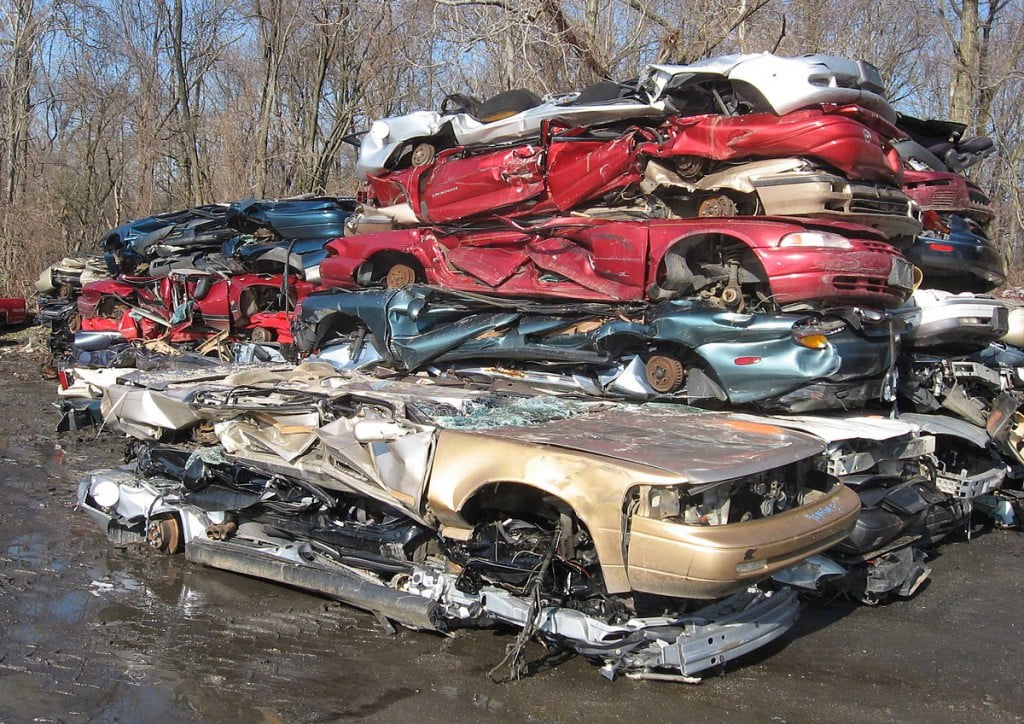If you are an automobile enthusiast and keep yourself updated with the happenings of the industry, then you must have surely heard about the new Vehicle Scrappage Policy. As the name suggests, it deals with dismantling the old vehicles properly. The policy is pending with our government for quite some time now. FADA (Federation of Automobile Dealers Associations) has been pressurizing and suggesting ways to implement this policy, which will make it easier and attractive for private owners to give their vehicles up for scrappage. FADA proposes to give incentives to private owners instead of forcing them to give up their vehicles. This will lead to quick mass-adoption of the policy, once it is approved and implemented. Let us look in detail, what this policy and scrappage process entails and how does it affect us.
Also read: Indian Oil launches 100 Octane performance fuel in India – Advantages of this fuel!

Vehicle Scrappage Policy – Rules
Currently, any petrol vehicle older than 15 years or diesel vehicle older than 10 years, is not permitted to be on the road. This is because the governments and the people alike, are getting more and more environment conscious day by day. These vehicles are a huge contributing factor to the pollution in the country. Vehicular pollution is also a major contributor to global warming. Hence, it becomes necessary to get rid of vehicles that cause high pollution in the environment. Once implemented, people will be able to take their vehicles to the proper dumping ground where the vehicle can be disposed of in the right way without any problems. Also, it will be even better if the government could incentivize this process to promote it. Incentives can be in form of discounts on the new vehicle.
Also read: Why choosing the right tyre is important and easy!
Vehicle Scrappage Policy – How does it affect us?
As normal people, we might think that this will not apply to us or won’t cause any damage to us. But it must be understood that this sector is highly unorganized at the moment in India. Some people are dismantling the vehicle unprofessionally which leads to incomplete disposing of all the parts the right way. For example, components other than metal, like glass, rubber, plastics are not disposed of properly and cause pollution on land. Such components are also a risk to public health because they don’t decompose and stay in the environment for a long time.
Also read: National Highways to become toll-booth-free – GPS-based toll collection!
Then there is a problem of liquids from the engine of a vehicle. The people who do it without the proper procedure, spill the coolants, engine oils, and other fluids directly into the land or the rivers. This, needless to say, is not the way to deal with such liquids. This is because many of these oils are toxic in nature and pollute the soil or the land. The environmental hazards related to such acts are dangerous and long-term. Everything considered this affects all of us in a very deep way. Not only is it a health hazard to us but even to the planet and our next generations.
Also read: Front passenger airbag to become mandatory – Amendment to the Automotive Industry Standards!
Vehicle Scrappage Policy – How to move forward?
The FADA and other concerned organizations are suggesting things like incentives to the vehicle owners. Things like tax benefits and discounts on new vehicles will definitely cause willingness among people to get rid of their old vehicles. India is one of the fastest-growing automobile markets in the world. That, however, also means that we need to start this policy very soon otherwise, we can also be one of the highest-vehicular pollution-causing countries.
Image Credit: Wikipedia

